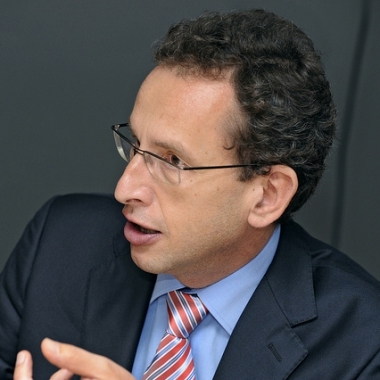Brussels is About to Protect Citizens from Intelligence
13 February 2024
Indeed, from the artificial one. But it will be damaging anyway. To the European high tech industry and to all others that could use some intelligence.
If what is proposed is adopted, the regulation will cause Europe to fall further behind the US and China in the field of high technologies, especially artificial intelligence (AI). It will also cause developmental lag in all other fields, as Europeans will not be able to freely use the globally available state-of-the-art AI tools. This is already happening. Google and Microsoft’s AI tools were available in Europe with a delay or not at all. This is a result of a previous “historical” legislative achievement called GDPR.
After having tied the Europeans’ hands, the European Commission is promising to comfort researchers with dedicated funding for AI research. This is not a solution. Science that is not motivated by users, by the market, is not as ambitious as science that operates in a free competitive environment.
Nor is it a solution that the AI regulation should not apply to scientists or that scientists will have privileged access to some data and technologies, as is happening in social network analysis. This is commercially extremely interesting data, and this privileged position gives science the advantage of deciding of what to do with this data.
AI is just a computer programme
To begin, we should debunk a myth. AI is not so special. It is like any computer programme: we feed it inputs and it creates outputs when we press a button. What AI does extremely well is firstly, recognise patterns in this data; and secondly, know how to continue and generate the patterns. These patterns can be statistical numbers, text, pictures, architectural designs, poems … AI recognises a pattern that links a lab result to a disease. It continues the pattern when we ask a chatty AI like ChatGPT a question.
Both the recognition and the generation of patterns are at the foundation of reason. Pattern recognition is the basis of all rational behaviour and science itself. Anyone should be allowed to Search for and find patterns. They are a mathematical reality. If AI finds a pattern that links the absence of a Y chromosome to a person’s ability to have a child, this is mathematics, not political incorrectness.
Pattern generation, i.e., creation, is protected by conventions that guarantee freedom of expression. Why shouldn’t a human be able to express something they have learned with the help of artificial intelligence? Why censor it?
AI is revolutionary technology
Artificial intelligence is more than just another computer programme. It is a groundbreaking technology on the level same level as the Printing Press and the Internet.
When one compares the draft AI Act with the regulation of the press in the 18th century, one can only be disappointed. In the 18th century, the fathers of America forbade the state to interfere with the press. In the 21st century, Brussels is all about interfering with AI. Instead of politicians worrying about how governments could use AI to create an Orwellian Big Brother, they worry about what private individuals could do to weaken governments. Instead of making sure governments stay away, they are interfering wholesale.
When print appeared in the 15th century, no one was elaborating which uses of print posed an “unacceptable risk”, which were “high”, which were “limited”, and which were “minimal risk”. The Internet was also lucky enough to be developed under the radar until some politicians thought they were losing elections because there were too few controls on who could say what on the internet. The policies on “disinformation” and “hate speech” were born.
It is impossible to avoid the impression that the rush to regulate AI seeks to prevent that technology from possible growing over the heads of politicians and challenging their powers.
AI is a general technology
Patterns are everywhere and therefore AI is a general, multipurpose tool. It makes no sense to regulate it as such. One should, as before, regulate the areas of human activities and do so in a technologically neutral way. If something is prohibited, it should not be done manually, or with Excel, or with AI.
For example, it may be necessary to label fake photos as such. Whether they are faked with AI, or Photoshop, or with a sharp blade, should not matter.
In democracies, regulation should follow a simple rule; list what governments are allowed to do. All else, they are prohibited. List what citizens are prohibited to do. All else, they are allowed. These rules exist and AI should not change anything. Should any new disputes arise, let the courts create precedents.
General European regulation of AI also hides a danger of Brussels’ power grab. It regulates the use of a technology which is applicable in many policy areas. This includes topics such as internal security, justice, education, healthcare and culture. These are not European, but member state competencies. Thus, Brussels found yet another way to extend its powers beyond the treaties.
In conclusion
Sweeping AI regulation as such is unnecessary. With some “historic” legislative act, Europe will not become a leader. Just as we would not become a leader in the automotive industry by putting road signs and speed limits along the roads where Chinese and American cars are driving.
It is not AI that should be regulated but healthcare, education, policing, etc. In the era of fast-paced technological development, legislation should be technologically neutral. It used to be like this. The 5th Commandment says, “Thou shalt not kill,” and does not specifically deal with knives, axes, or poisons.
ENJOYING THIS CONTENT
